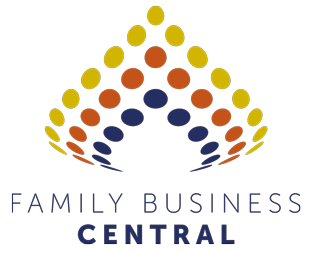
Family Business Problems: How do I manage the Poor Performance of my Sister’s Husband?
Family businesses are complex and, at times, deeply confusing things. They are wonderful, creative, entrepreneurial, flexible and, at times, frustrating. They combine one’s financial security, business identity and family relationships all into one—what could possibly go wrong…? Well, quite a bit.
Every time people hear that we work with family businesses, they all seem to know a family who works together and usually have some sort of war story about some disaster that happened. I do think this is a classic case of selective bias – of course there are examples of disasters, but these are far outweighed by the amazing successes that family businesses all over the world demonstrate. However, this not to say that managing a family business does not have its challenges.
This month, we want to focus on the pitfalls of managing other family members, within the family business. When all is going well this is fine, however the question has been often asked of us: how do you manage a family member when their performance is not up to standard, or they behave in inappropriate ways?
Much like in any business, a manager has to deal with an employee’s poor performance or poor behaviour – there is no choice in this. If it doesn’t happen, all sorts of deeply unhelpful messages get sent through the organisation.
However, in family businesses, when family ties and emotional relationships are involved, this is not always easy or straightforward.
How to approach conflict or inappropriate behaviour within the family business
There are several ways of coming at this. The first is to think about how you would approach this situation if the other person was a non-family employee — this gives you a lot of guidance.
The complexity managing a family business through a tricky employee situation, much like dealing with conflict within the family business, comes from all the other factors that come into play as this is not simple manager/employee dynamic. It is manager/employee/family member/wider family dynamic.
The risk is the drama of someone being managed, regarding their performance or behaviour, bleeds over into the family. In this case, a brother-in-law, not liking being pulled up about his behaviour/performance, complains to his wife who is also my close sister… Or even if my brother-in-law can see that I’m justified, his wife – my sister – may well want to have a go at me for ‘picking on her husband’, because of course she is on his side. There are so many recipes for disaster here…
It does not have to be this way. If the family has discussed, agreed and written down the expectations, this issue can be resolved much more easily. Not ‘easy’ but ‘easier’. Ideally, you want these in place well before you start addressing issues of a family member’s work performance.
Setting expectations within the family business
When it comes to family business, it’s crucial to set clear expectations from the outset.
Again, we come back to the importance of a family charter. Often people see a family charter as a set of agreements around money, the family council and succession. And, sure, it is all of that. However, what is equally important is the expectations around family members working in the business, not just qualifications and experience, but how they are to behave and perform their work. Equally, if someone is managing a family member, they need to be able to do their job as a manager, otherwise, we now have two people not doing their job.
When taking a family through the development of a family charter clarifying and agreeing to these workplace expectations is important for both family employees and family managers.
Our first rule for anyone working in the business is merit — you only get a job in the business if you have the necessary skills and knowledge. At the same time, any family member working in the business needs to see themselves as role models, representing the family to the whole workforce. Family members often do not realise just how important being a role model is to the rest of the organisation.
A family member’s behaviour has to be absolutely above board when working in the business. They agree to follow all the rules of the business and, when they do transgress, which they may do, they agree to rectify and change their behaviour—this is also being a very good role model.
Every member of the family business, without exception, should be following all the rules and codes of conduct and demonstrating what the expected behaviours are of anyone working in the business. When this does not happen in family businesses, the impact on the rest of the staff can be extremely negative.
So following on from this, if family members are there on merit and they are expected to be role models for the rest of staff, logically, when their performance or behaviour has to be addressed, they need to address the issues quickly and appropriately. And – this detail is key – the rest of the family have to stay out of it, allowing the manager do their job as they see fit. Often this is very hard for spouses or parents to watch their son/daughter/spouse struggle at work or be brought up because of their work performance, however they need to stay out of it— for everyone’s sake!
If there are issues to be discussed around this—the Family Council is the place for this to happen.
Some families get around this whole issue by having a rule that no family member can report to another family member. Once you get above a certain size this might be practical, however for many family businesses, especially those who really put the ‘family’ into family business, this is just not possible — so the expectations become very important.
So what are these expectations that need to be set up?
The expectations are not that difficult. Family members are expected to abide by all the rules that any other non-family member is expected to. No more no less. It is more important that family members do this than non-family, as they are significant role models for the business just by being family. But in reality we are not asking that much extra of them – frankly we’re asking them to follow the rules and be a good employee. Just like all the other employees.
The other set of expectations is on the rest of the family members; parents, siblings, spouses etc. They need to let the process flow as it should. It is very tempting to jump in to try and protect your child or partner when you think they are not being treated fairly, but this is extremely unhelpful and completely confuses the relationships between family and business.
The impact of family relationship issues on company culture
If family member employees are seen to be getting treated differently, or being allowed to get away with poor behaviour/performance—it sets up a dreadful double standard in the business that can have significant negative effect on morale and company culture.
This is all the more reason for families who run businesses to get these things sorted out – and the earlier the better. Setting up a family charter and having the necessary discussions is so much easier and cheaper, both in time and money, if done early. They can be done later, but often significant amounts of time and money are spent undoing unhelpful behaviours and expectations.
Often family members feel exposed when they realise that the behaviour they have been getting away with for many years is finally being recognised as inappropriate and they can get very defensive.
Start early! Talk about these issues. The template and process we have designed for writing Family Charters covers all these issues and more. When done early they are relatively easy and quick to put in place and implement.
Talk to us now about how we can help your family start developing your family charter — the earlier you start the easier it is.

